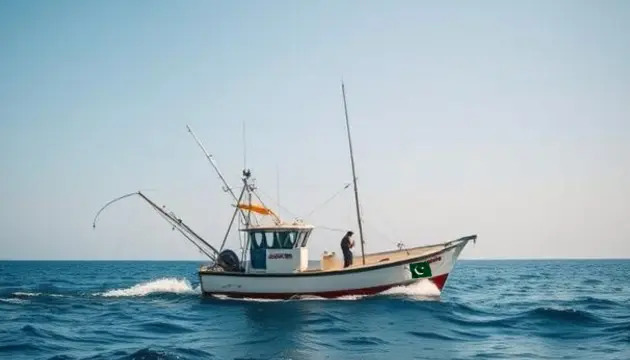
Pakistan Sets Sights on $200 Million in Tuna Exports with New IOTC Quota
- Business
- July 6, 2025
- No Comment
Report by “Safarti Tarjuman” International News Desk
SLAMABAD, July 6 (APP):Pakistan is aiming for a \$200 million uplift in its tuna exports after securing a new fishing quota from the Indian Ocean Tuna Commission (IOTC), the country’s Maritime Affairs Minister Muhammad Junaid Anwar Chaudhry announced this week.
Pakistan is eyeing a $200 million boost to its seafood sector after securing a new tuna fishing quota from the Indian Ocean Tuna Commission (IOTC), Maritime Affairs Minister Muhammad Junaid Anwar Chaudhry announced on Saturday.
According to the ministry, the IOTC has allocated Islamabad a quota of 25,000 metric tons, including 15,000 tons of Yellowfin Tuna and 10,000 tons of Skipjack Tuna.
The IOTC — an intergovernmental organization of 30 member countries established under the UN Food and Agriculture Organization (FAO) — manages tuna and related species in the Indian Ocean to ensure sustainable use through quotas, research, and regulatory oversight.
Calling it a “turning point” for Pakistan’s tuna industry, Minister Chaudhry said the quota could significantly improve foreign exchange earnings.
“With global prices for these tuna varieties ranging between $5 and $7 per kilogram, and even more with value-added processing, the economic impact could be substantial,” he noted.
The minister pointed out that while Pakistan currently harvests over 45,000 metric tons of tuna annually, much of it is lost to informal markets due to lack of regulation.
To capture its full potential, the government has launched reforms under the National Fisheries and Aquaculture Policy to harmonize regulations and encourage sustainable, revenue-generating fishing practices.
“This policy aligns with Pakistan’s international climate and marine conservation commitments,” Chaudhry emphasized.
He added that harmful fishing methods like trawling and gillnetting are being replaced with selective longlining, which helps preserve marine biodiversity and maintain healthy fish stocks.
“This transition supports ocean health, particularly as climate change disrupts fish migration and ocean temperatures,” he explained.
The ministry has also revised seafood export certification and testing fees, increasing revenue from Rs48 million (around $168,000) to Rs250 million (about $880,000).
Thank you for reading! For comprehensive news coverage and exclusive stories, visit SafartiTarjuman.com




